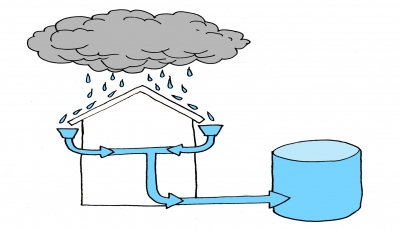Professional Advice on Reclaim Waste Liquid Waste Removal and Industrial Waste Water Treatment
Professional Advice on Reclaim Waste Liquid Waste Removal and Industrial Waste Water Treatment
Blog Article
Fostering Resource Effectiveness and Environmental Protection With Liquid Waste Removal Programs
In the realm of ecological stewardship, the administration of liquid waste stands as an important time where source efficiency and environmental security assemble. Via a lens of aggressive engagement and calculated foresight, the landscape of liquid waste monitoring reveals a tapestry of obstacles and opportunities that bid us to check out the course towards a greener and more sustainable future.
Value of Fluid Waste Elimination
The importance of liquid waste removal depends on its important duty in maintaining environmental wellness and securing public wellness. Fluid waste, if not appropriately handled, can present significant risks to communities, water resources, and human health. With reliable removal procedures, damaging materials such as virus, contaminants, and chemicals are avoided from contaminating the atmosphere and triggering damaging effects.
Proper liquid waste elimination also aids in stopping the spread of illness and minimizing the capacity for groundwater contamination. By safely taking care of liquid waste, the risk of waterborne illnesses and pollution-related health and wellness issues is dramatically decreased - Reclaim Waste Melbourne. Additionally, efficient elimination methods add to keeping the overall cleanliness and aesthetic appeals of areas, consequently improving the lifestyle for citizens
Moreover, liquid waste elimination plays an important function in sustaining lasting development and ensuring compliance with environmental laws. By sticking to appropriate waste management services, markets and protocols can decrease their environmental impact and demonstrate business responsibility. Ultimately, purchasing durable fluid waste removal programs is essential for promoting environmental stewardship and cultivating a healthier, more secure future for all.

Benefits of Reliable Disposal
Reliable disposal of fluid waste not just safeguards ecological health and public wellness however also generates countless benefits that expand beyond immediate control procedures. One key advantage of reliable disposal is the decrease of pollution in water bodies and soil. By correctly managing fluid waste, the threat of contamination decreases, protecting environments and safeguarding biodiversity. In addition, efficient disposal practices add to resource conservation. Through procedures like recycling and power healing, useful resources can be drawn out from liquid waste, promoting sustainability and lowering the pressure on resources. Additionally, taking on reliable disposal methods can result in cost savings for services and communities. By enhancing waste management procedures, organizations can streamline procedures, lessen disposal expenditures, and potentially generate earnings via the sale of recycled materials. On the whole, the advantages of efficient liquid waste disposal are multifaceted, incorporating ecological security, resource performance, and financial advantages.
Technologies for Waste Therapy
Using advanced innovations for waste therapy plays an important function in making certain the effective management and secure disposal of fluid waste. Among the essential innovations utilized in liquid waste therapy is organic therapy. This method utilizes bacteria to damage down organic matter in the waste, anonymous transforming it into safe by-products. One more typical technology is chemical therapy, where chemicals are included to the waste to neutralize harmful parts or precipitate pollutants for elimination. Physical therapy techniques, such as helpful site filtering and sedimentation, are also commonly used to divide solids from liquid waste.
In addition, thermal therapy approaches such as incineration can be used for the complete devastation of harmful parts in fluid waste. In general, the assimilation of varied treatment innovations makes certain comprehensive and ecologically pleasant management of fluid waste.
Function of Regulations and Conformity
In the realm of fluid waste monitoring, adherence to regulatory frameworks and conformity criteria is vital for guarding environmental wellness and sustainability. Regulations play a critical duty in governing the appropriate handling, therapy, and disposal of fluid waste to prevent damage to communities and human wellness. By developing clear standards and standards, regulatory bodies guarantee that organizations and people entailed in fluid waste management run in an ecologically accountable way.
Compliance with these regulations is not just a lawful need however likewise an ethical commitment to safeguard the setting for future and existing generations. It involves implementing finest techniques in waste collection, treatment, transport, and disposal to minimize ecological influence and advertise source effectiveness. Non-compliance can result in fines, legal action, and reputational damages for organizations, highlighting the importance of maintaining regulative requirements.

Future Trends in Waste Management

One more crucial fad in waste monitoring is the adoption of innovative data analytics and man-made knowledge to optimize waste collection courses, boost sorting procedures, and enhance total operational see post efficiency. These technologies allow waste administration business to make data-driven decisions, bring about cost savings and ecological benefits.
Furthermore, there is an expanding emphasis on the growth of decentralized waste monitoring systems, such as onsite therapy centers and mobile waste processing devices. These systems provide adaptability and scalability, permitting much more reliable waste handling in varied settings.
Verdict
In verdict, fostering source effectiveness and ecological security with liquid waste removal programs is critical for lasting development. Efficient disposal approaches, advanced innovations for waste therapy, and strict guidelines play key duties in reducing environmental impact. Looking in advance, constant innovation and renovation in waste monitoring techniques will certainly be important for resolving the expanding difficulties of liquid garbage disposal.
In the realm of environmental stewardship, the administration of liquid waste stands as a vital time where source performance and ecological security converge (Reclaim Waste).Making use of innovative innovations for waste treatment plays a crucial duty in guaranteeing the reliable administration and risk-free disposal of fluid waste.In the world of fluid waste administration, adherence to governing frameworks and conformity requirements is paramount for protecting environmental health and wellness and sustainability.In final thought, fostering source performance and ecological protection through liquid waste removal programs is essential for lasting advancement. Looking in advance, constant innovation and renovation in waste management methods will be essential for attending to the expanding obstacles of fluid waste disposal
Report this page